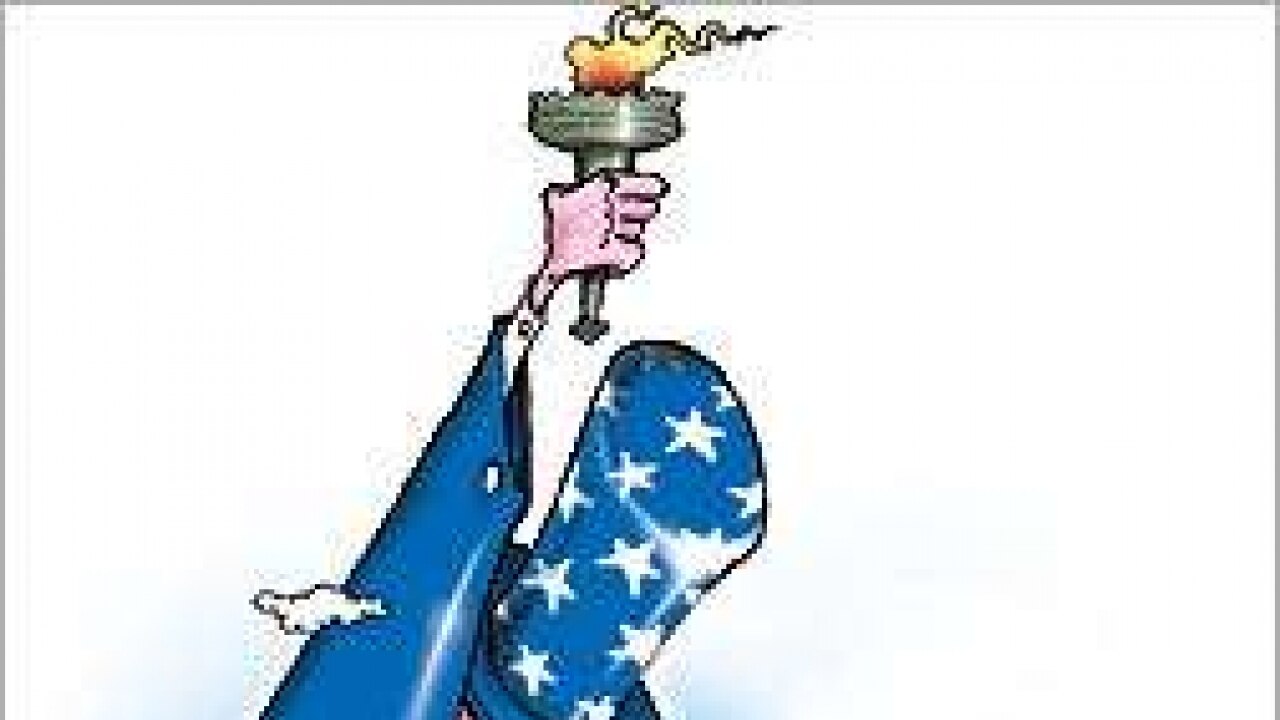
On the face of it, the US might seem a hospitable land for tourists to visit and professionals to work in. It offers a cornucopia of visas from the alphabet, from A (A-1 visas for diplomats) to V (V-2 for children of green-card holders.)
But for a decade now, the H-1B has turned US hospitability to hostility. The visa was originally invented by the US to recruit ‘temporary’ workers from other countries in ‘speciality occupations’ that had a shortage of local talent. But a common feeling now is that H-1B visas, far from helping the US, is paving the way for American employees to be replaced.
The latest to raise the bogey of displaced jobs are Senators Charles Grassley, a Republican, and Richard Durbin, a Democrat, who have written directly to nine Indian IT companies, including Tata Consultancy Services, Wipro and Infosys, about “the fraud and abuse” of these visas. Their questions included one about whether the companies were “H-1B-dependent” (with at least 15 per cent of employees holding the visa).
Predictably, this direct offensive has incensed Indians. Commerce minister Kamal Nath has written to US trade representative Susan Schwab saying this approach is “surprising and unwelcome”. This “direct intervention,” he said, would “create uncertainties in the minds of these companies and undermine business confidence”.
Says Achutan Nair, vice-president (strategic resourcing) at Wipro: “Nobody is misusing H-1Bs. This is an issue only because of the forthcoming US elections. This is an opportunity for some to raise their voices against the outsourcing issue.” Adds Phiroz Vandrevala, executive vice-president and head of global corporate affairs, TCS: “We will respond to the US senators in a timely and appropriate manner once we receive their letter.”
Basab Pradhan, who quit Infosys in 2005 to launch his own company, says in his blog: “Interestingly, Accenture, Cognizant and Delloitte have not been sent letters. Why? They are all seemingly ‘American’ companies (though) they aren’t.”
Though nobody denies that H-1B workers replace Americans, supporters of the visa say that this is in the larger interests of the American industry and economy, besides being a bonanza for Indians. “For Indian companies, H-1B visas are a lifeline; 60-70 per cent of their revenues are out of the US,” says Pradhan, adding, “For US companies, the visas affect R&D, which affects new product innovation and the company.”
In fact, Phil Bond, president and CEO of the Information Technology Association of America, says the cap on H-1B visas should be raised and made responsive to market demands. “America must have access to the world’s best talent if we are to compete in the global economy,” he says.
Despite all the noise, Friday’s US Senate decision may mean that the H-1B quota may go up to 1,15,000. This is not the first time the limit has changed: It went from 65,000 to 1,15,000 in 1998, to 1,95,000 in 2000, down to 90,000 in 2004 and 65,000 in 2006. As one head of a Banglore company puts it: “Every time there is some noise over these visas you see more outsourcing and more visas to the US.”
With inputs from Bhargavi Kerur